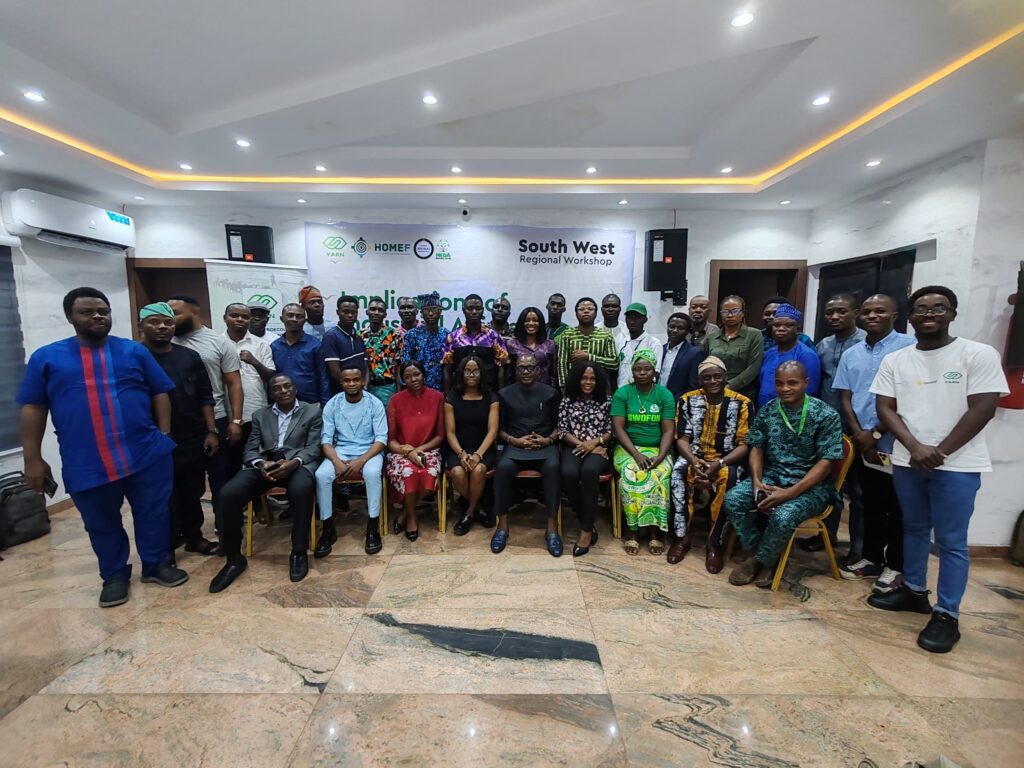… Say Project Threatens Nigeria’s Food Sovereignty, Smallholder Farmers
… Warn Of Health Risks, Displacement, “Industrial Food Colonialism”
Daud Olatunji
Civil society groups, farmers, community leaders, and other stakeholders in the South-West have raised alarm over the $2.5 billion industrial animal farming investment plan by Brazilian meat giant, JBS S.A., warning that it poses a major threat to Nigeria’s food sovereignty, environment, and public health.
The concerns were contained in a communiqué issued at the end of a regional workshop on the implications of industrial animal farming, held in Abeokuta, Ogun State, on September 30, 2025.
The participants described Nigeria as being positioned as a “test case” for industrial agriculture in Africa without proper safeguards, stressing that the JBS project—backed by favourable policies and regulatory support from the Federal Government—risks displacing millions of smallholder farmers who currently produce about 70 per cent of the nation’s food supply.
In their observations, the stakeholders accused multinational meat corporations of advancing “industrial food colonialism” under the guise of agricultural development.
They noted that JBS has a “documented history of environmental destruction, human rights abuses, and tax evasion” in other countries, and warned that Nigeria’s weak regulatory framework makes it vulnerable to exploitation.
“The MoU signed with JBS remains largely inaccessible to the public, despite being a public document. Nigerians have a right to know the details of an agreement that will affect their food, health, and environment,” the communiqué stated.
The workshop highlighted public health risks such as zoonotic diseases, antibiotic resistance, and ultra-processed meat products, in addition to threats of community displacement and the erosion of indigenous food systems.
The stakeholders demanded the immediate suspension of the JBS project pending transparent Environmental and Social Impact Assessments and extensive community consultations.
They also urged the Federal and State governments to prioritize agroecology and farmer-led food systems over industrial models.
“Corporate consolidation of food systems creates dependency and undermines Nigeria’s food sovereignty. Our country must choose between empowering local farmers or surrendering our agricultural future to foreign corporations,” the group declared.
The participants called on the government to support smallholder farmers with policies, financial assistance, infrastructure, and farmers’ markets in key states such as Lagos, Ogun, Oyo, Kaduna, Kano, Niger, and Cross River, where JBS facilities are proposed.
They further demanded stricter accountability mechanisms for multinationals, including environmental safeguards, living wage requirements, and protection of community rights against displacement.
Civil society groups, they said, must also harmonise their advocacy, while the media was urged to “investigate and expose the activities of industrial farming corporations” and raise public awareness on food sovereignty.
The communiqué concluded with a warning that Nigeria stands at a crossroads:
“The choices we make today will determine whether Nigeria’s food system serves its people or corporate profits. We must always put our people first, over profit.”
Do you want to share a story with us? Do you want to advertise with us? Do you need publicity for a product, service, or event? Contact us on WhatsApp +2348183319097 Email: platformtimes@gmail.com
We are committed to impactful investigative journalism for human interest and social justice. Your donation will help us tell more stories. Kindly donate any amount HERE




